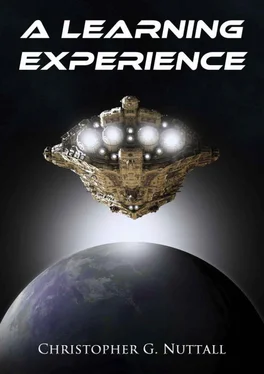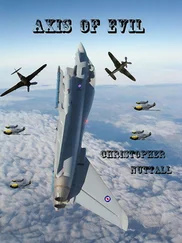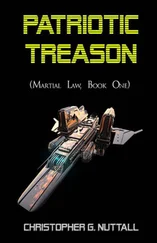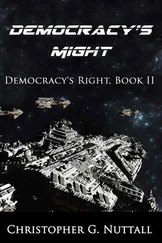A log cabin, perhaps ? He asked himself, sarcastically. Or a simple farmhouse ?
He couldn’t help looking around like a yokel as they came out of the tunnel and walked up towards the Oval Office. The White House was like a palace, at least in the parts that were used to impress foreign visitors. He couldn’t help wondering if some of the odder First Ladies had been warped by living in the house, both mistresses of the building and, at the same time, prisoners of their husband’s career. But then, it was only recently — comparatively speaking — that women were expected to be more than just wives and hostesses.
The President rose to his feet to greet Steve as he stepped into the Oval Office. Steve held out his hand and shook it firmly, then sat down facing the President’s chair. The sofa was sinfully comfortable, he decided, as the President sat down. Perhaps he should buy a few for the moon.
“The world seems to have turned upside down yet again,” the President observed. “But at least people seem supportive of your decisions.”
Steve nodded, shortly. The capture of Iran’s government had been greeted with cheers in the streets of America, particularly after the blame had been placed for the bombings in New York. A handful of politicians who had openly questioned Steve’s actions had been hit with a colossal backlash from the voters and several of them looked likely to be recalled or lose the next election. The rest of the world had been a little more cautious in their responses, but it was hard to argue against the evidence. Some of the clerics had been shaming their religion in ways Steve had always considered only theoretically possible.
But the entire world seemed to be holding its breath, waiting for the next change in the global situation. God alone knew what would happen next.
“My brother returned from an alien world,” Steve said. In the five days since Captain Perry had returned to Earth, the news had leaked and spread widely. Everyone wanted to interview the commander and crew of the captured starship. Kevin had given a handful of interviews, but mainly kept himself out of sight on the moon. “Among other things, he obtained several more fabricators and plenty of alien tech manuals.”
“Allowing you to unlock the secrets behind alien technology,” the President said. Once, Steve would have suspected the President hadn’t actually read his briefing notes. Now, he knew the man was far from stupid. “How long do you think it will be before you produce your own fabricator?”
“Probably several years,” Steve admitted. “Reassembling molecules is a little more complex than producing fusion power or even antigravity. But the new fabricators will allow us to expand by leaps and bounds. Unfortunately, it comes at a price.”
He paused, then explained about the alien demand for mercenaries.
“We don’t seem to have much else to market,” he concluded. “And we need your help.”
The President frowned. “I believe that much of your population is made up of ex-military personnel,” he said, after a moment. “It was one of your criteria for early recruitment.”
Steve nodded, remembering how the DHS had seen vanishing veterans and panicked over nothing. But then, he would probably have asked a few hard questions if he’d seen veterans disappearing without explanation.
“It is,” Steve said. “Their first request is for five thousand soldiers, Mr. President, but we believe they will want more. Hundreds of thousands more.”
The President’s eyes narrowed. “You want to borrow American military units.”
“Yes, Mr. President,” Steve said. “Maybe not for the first deployment, but certainly for others.”
“I have a feeling Congress will not be pleased,” the President said. “There was a reason mercenaries became so popular in Iraq.”
“Cowboys,” Steve muttered. The government had been worried about the effects of losing troops on American public opinion, so they’d hired mercenaries to fill some of the gaps. But the mercenaries had ranged from genuinely competent to idiots and they’d caused a lot of political problems for the government. He didn’t blame the Iraqis for wanting to prosecute some of the former mercenaries. They’d killed people without any good cause. “But we’re going to do better than that, Mr. President.”
The President sighed. “And if I refuse?”
“We intend to recruit anyway,” Steve said. “But we won’t recruit from serving formations.”
He left unspoken the simple fact that quite a number of serving soldiers would consider moving to the mercenary force rather than reenlisting in the United States military. There were soldiers who had enlisted for adventure, rather than anything else, and what better adventure than fighting on a whole different world? And there would be a high rate of pay, generous benefits and other advantages, even if most of the alien currency they earned would be taxed heavily to help fund Earth’s expansion into the galaxy.
“I was also planning to buy up one of the private training complexes and turn it into a recruitment and training depot,” he continued. “But if you think that would cause political problems…”
“It would,” the President said. “Unless, of course, we got something in exchange.”
Steve leaned forward. Now the bargaining could begin. “What do you want?”
The President studied him for a long moment. “Assistance in producing our own fusion reactors,” he said, simply. “And superconductor batteries.”
“American firms are already involved with the research efforts,” Steve pointed out. “And some of the components cannot be manufactured on Earth.”
“Then we would want additional supplies of both,” the President said. “And some military assistance.”
Steve lifted his eyebrows. International terrorism was reeling, both under the sudden loss of their leadership cadres and their financial backers. For once, the War on Terror had come genuinely close to being won. But there were growing problems in the Middle East and Pakistan, which was experiencing a terrifying level of civil unrest. It was quite likely, Steve knew, that the Pakistani Government would fall soon enough. And it wasn’t the only major headache.
“What sort of assistance would you like?” He said, finally. “And why?”
“We believe that North Korea is undergoing severe economic problems,” the President said, softly. “Their Chinese patrons have been distracted and the Russians aren’t interested in feeding them these days. It is quite possible that their government will consider making a lunge for South Korea, unleashing a bloody war.”
Steve scowled. He hadn’t seriously considered Korea, but he had to admit the President had a point. “We could wipe out their leadership too,” he said. “And yet that would certainly result in civil war.”
The President shook his head. “We would like some military assistance if the North Koreans do start attacking the South,” he said. “And we would like their nuclear program destroyed.”
Steve nodded. “Very well,” he said. “It will be done.”
* * *
“An approvable decision,” Romford said, four hours later. “Getting rid of North Korea as a nuclear power will definitely make the world safer.”
“I suppose,” Steve said. He looked around the training complex. It was surprisingly impressive, reminding him of Camp Pendleton. “These guys didn’t miss much, did they?”
“I believe they were retired Marines,” Romford confirmed. “The training program had its limits, but it certainly did a good job at turning out cohesive teams. And they proved themselves in combat.”
Steve nodded. International Warriors had been one of the large private security companies in the world, recruiting soldiers from all over the world and hiring them out as everything from bodyguards to local police forces. Steve had met a couple of their recruiters back when he retired from the Marines and he had to admit that he had been seriously tempted. If he hadn’t had the ranch, he might well have signed up and been deployed to Africa or the Middle East as part of a private bodyguard team.
Читать дальше












